- About Us
- Advertise
- Editorial
- Contact Us
- Terms and Conditions
- Privacy Policy
- Do Not Sell My Personal Information
© 2025 MJH Life Sciences™ and Dental Products Report. All rights reserved.
The 12 Conditions of Concern for Dental Professionals
Learn a bit about the 12 conditions of concern discussed by the Sanders Sisters in the latest episode of the Floss & Flip Flops podcast with this slideshow.
Each month the Sanders Sisters—dental hygienist and speaker Katrina M. Sanders, RDH, and podiatrist Dr Elizabeth Sanders, DPM—get together to discuss oral-systemic health and all the ways dental and medical care providers can and should be collaborating to provide the optimal care to patients.
For their December 2022 episode, the Sisters took a musical journey to discuss some of the key inflammation-related conditions of concern that are likely impacting your patients’ lives. Take a tour through the dozen conditions right here, and listen to the podcast below, or via your preferred podcast player. Be sure to subscribe the podcast so you never miss an episode of Floss & Flip Flops.

"We do know that 1 in 10 American children have asthma, and there are direct links between asthma and heart disease… We know that cardiovascular disease is the number one cause of death in the United States. And it's a huge burden. So it's something that we should be talking about on a routine basis. And we know that patients who have asthma have a 60% increased risk of having a cardiovascular event." – Katrina Sanders, RDH
Reference
- Tattersall, M. C., et. al. (2015). Asthma Predicts Cardiovascular Disease Events: The Multi-Ethnic Study of Atherosclerosis. Arteriosclerosis, Thrombosis, and Vascular Biology, 35(6), 1520-1525.

"Let's just be straightforward and honest and understand that cancer chemotherapy really has been beneficial for the treatment of cancer, and a lot of cancers have almost been considered to be curable illnesses because of this. However, it is considered cardiotoxic. And a lot of it is because of its increased risk of cardiovascular comorbidity and mortality in people who are receiving this, probably because let's say if you are receiving chemotherapy or radiation therapy around the mediastinum area or around the area of the heart, it could lead to an increased risk of cardio coronary heart disease, it could affect left ventricular systolic dysfunction, which is then going to lead to a problem throughout the blood vessels throughout your entire body. It could lead to valvular heart disease, or even arrhythmias." – Elizabeth Sanders, DPM
Reference
- Yeh, E. T. H., & Bickford, C. L. (2009). Cardiovascular Complications of Cancer Therapy: Incidence, Pathogenesis, Diagnosis, and Management. J Am Coll Cardiol, 53(24), 2231-2247.
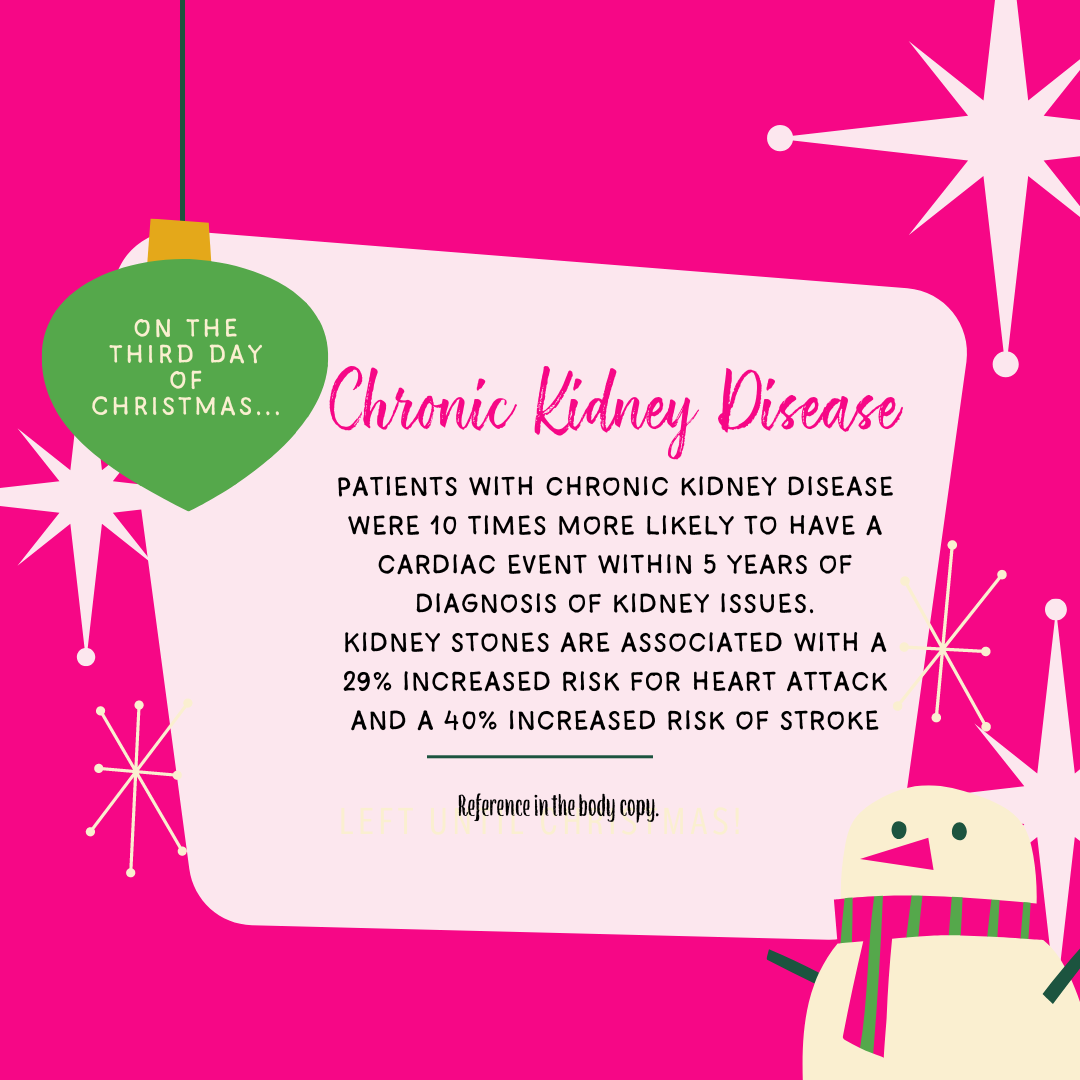
"It's all connected. And we say that in dentistry all the time, the mouth is connected to the rest of the body, but the kidneys are part of that superhighway system within the circulatory system, and it really becomes critical for us when we talk about a patient who's experiencing a very specific organ system issue, that these are individuals that are also going to be maybe perhaps displaying issues with other organ systems as well… I think it's it's vital for us, as we look at some of these considerations for patients, again, to understand they have chronic kidney disease, and they have elevated risk for cardiovascular or stroke risk. What are some of the preventive things that we can do to help these individuals to you know, manage or mitigate that risk, or at least stop dumping buckets of gasoline on the inflammatory fire for these individuals? And so again, this is where I do believe that dentistry really has a terrific opportunity, you know, to be able to support our patients." – Katrina Sanders, RDH
References
- Chaikriangkrai, K., et. a l. (2015). Additive prognostic value of coronary artery calcium score and renal function in patients with acute chest pain without known coronary artery disease: up to 5-year follow-up. Int J Cardiovasc Imaging. 31(8), 1619-1626.
- Liu, Y., et. al. (2014). Kidney Stones and Cardiovascular Risk: A Metaanalysis of Cohort Studies. Am J Kidney Dis, 64(3), 402-410.

"I kind of want to emphasize that actually, it has been well documented that erectile dysfunction is a primary indicator of a cardiovascular problem. And it used to be thought that maybe you know, there, maybe there was dysfunction due to plaque buildup, or little coagulants in the micro blood vessels. But rather, it's a dysfunction of the inner lining of the blood vessels, or the endothelial and the smooth muscle in the very small blood vessels. And unfortunately, sometimes this is really the primary indicator when a man says, 'Oh, I have a problem' that really it is an underlying cardiovascular problem… This is where we need to talk to our patients about things that may be causing this as well, like their diabetes, or tobacco use, alcohol use, high blood pressure, high cholesterol, obesity, low testosterone, things like that." – Elizabeth Sanders, DPM
Reference
- Uddin, S. M. I., et. al. (2018). Erectile Dysfunction as an Independent Predictor of Future Cardiovascular Events: The Multi-Ethnic Study of Atherosclerosis. Circulation. doi:10.1161/circulationaha.118.033990
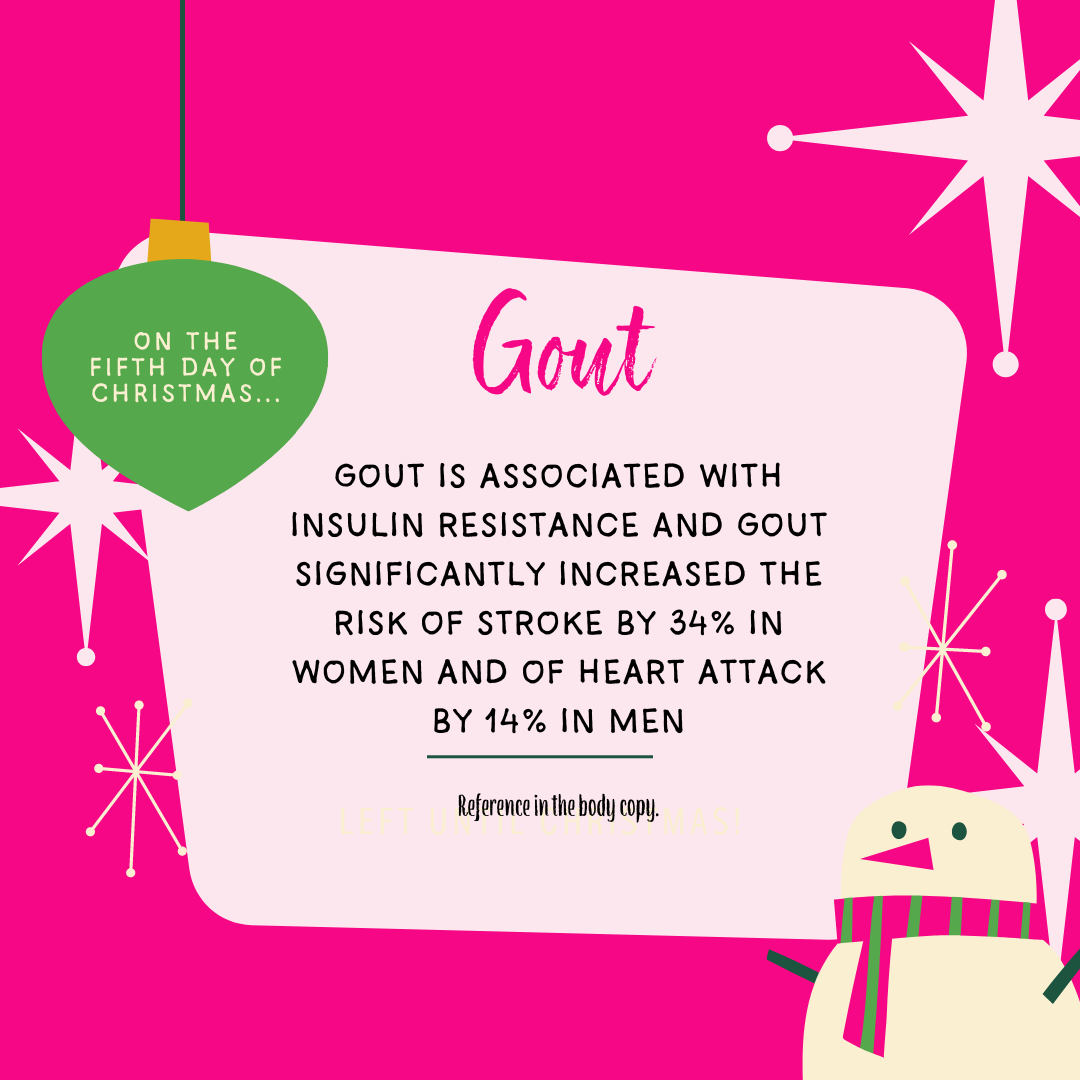
"I love that you brought up the dichotomy between acute and chronic gout, because I think this is where sometimes in medicine and in dentistry, we, you know, we try to do too much in the way of managing some of this for our patients. The reason why the patient is experiencing Gout is because of their diet, that their body is beginning to fail them to the point where they've elevated their risk for cardiovascular or stroke event. And so, you know, again, it comes down to, are we treating the symptoms, or are we treating the problem?" – Katrina Sanders, RDH
Reference
- Clarson, L. E., et. al. (2015). Increased risk of vascular disease associated with gout: a retrospective, matched cohort study in the UK Clinical Practice Research Datalink. Annals of the Rheumatic Diseases, 74(4), 642-647
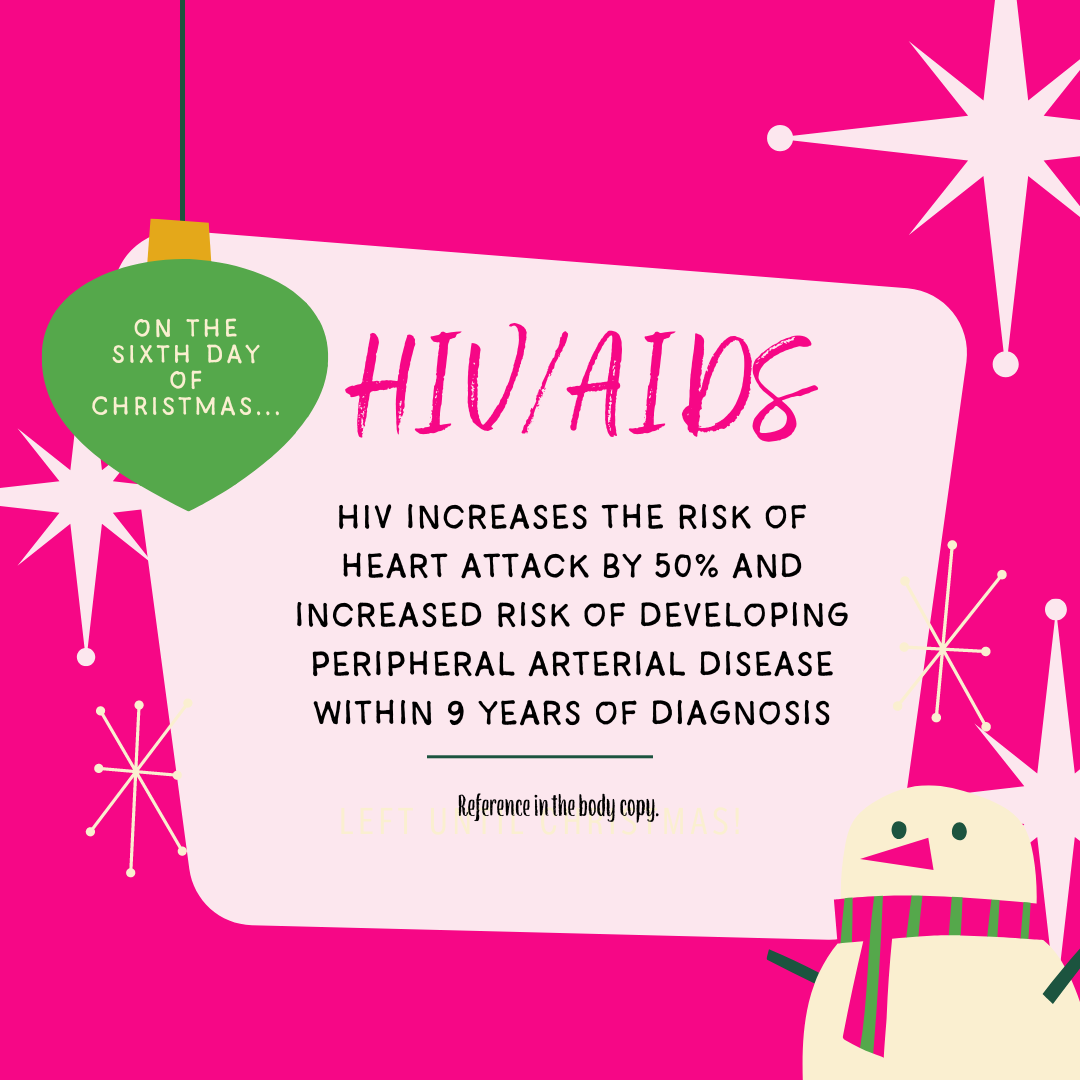
"Patients who are receiving antiretroviral medication therapy, they do have a significant increased risk for a variety of cardiovascular complications. This could include having an MI, just in general, affecting the entire heart, which could cause heart failure, with both either reduced or preserved ejection fractions or even sudden cardiac death. But then it can also affect the small blood vessels, so certainly can lead to peripheral arterial disease and stroke. So probably most of it is secondary to the complications of patients taking these antiretrovirals." – Elizabeth Sanders, DPM
Reference
- Beckman, J., Duncan, M., et al. HIV and PAD. March 12, 2018. Circulation; 10.1161.117.032647

"This is where we look at, yes, Hodgkin's lymphoma can be a treatable disease. The issue becomes if now our amazing oncologists are managing Hodgkin's lymphoma, and this patient is now in a state of remission, are we leaving this patient in the state of remission with advanced risk? So this, again, is where we, based on the work that we are doing in the dental space to manage and reduce cardiovascular risk, can be a supportive layer." – Katrina Sanders, RDH
Reference
- van Nimwegen, F. A., et. al. (2015). Cardiovascular disease after Hodgkin lymphoma treatment: 40-year disease risk. JAMA Intern Med. doi: 10.1001/jamainternmed.2015.1180

"The thyroid hormone is very important for the regulation of our body weight, our energy levels, our internal temperature, our skin, hair, nail growth, and our metabolism. So it's a very important function of our endocrine system and we know that patients who have hypothyroidism may have symptoms like decreased cardiac output, or increased systemic vascular resistance, or it could affect the walls of the arteries. So the walls of the arteries will become hard and thickened, and not be able to promote circulation throughout the body… It also causes a decreased heart rate and decreased stroke volume." – Elizabeth Sanders, DPM
References
- Rodondi, N., et al. (2010). Subclinical hypothyroidism and the risk of coronary heart disease and mortality. JAMA, 304(12), 1365-1374.
- Larsson Susanna, C., et. al. (2019) Thyroid Function and Dysfunction in Relation to 16 Cardiovascular Diseases: A Mendelian Randomization Study. Circulation: Genomic and Precision Medicine, 0(0). doi:10.1161/CIRCGEN.118.002468

"So in a stroke, you actually have a cut off of a blood supply to a certain part of your brain and it kills the brain cells in that particular area causing permanent damage. Okay, but migraines actually cause pain and sensory disturbances. So it's more of a neurological problem. And it causes changes inside the brain that are temporary… They're different, but they have an association, probably because of the risk factors that are associated with patients who do get migraines… Sometimes it could be due to being on an oral contraceptive pill. It could be due to hormones, it could be due to elevated stress, other risk factors like people who smoke people, who drink alcohol, or and people who have high blood pressure, diabetes, high cholesterol as well… This is where we need to talk about certain things that may actually help them, you know, staying hydrated, decreasing your smoking or smoking cessation, losing weight, exercising, trying to get rid of the daily stress, drinking more water, eating a healthier diet. And this is where we can take an active role talking to our patients, especially if patients are coming to us and not necessarily going to their PCPs." – Elizabeth Sanders, DPM
Reference
- Adelborg, K., et. al. (2018). Migraine and risk of cardiovascular diseases: Danish population based matched cohort study. Bmj, 360. doi:10.1136/bmj.k 96
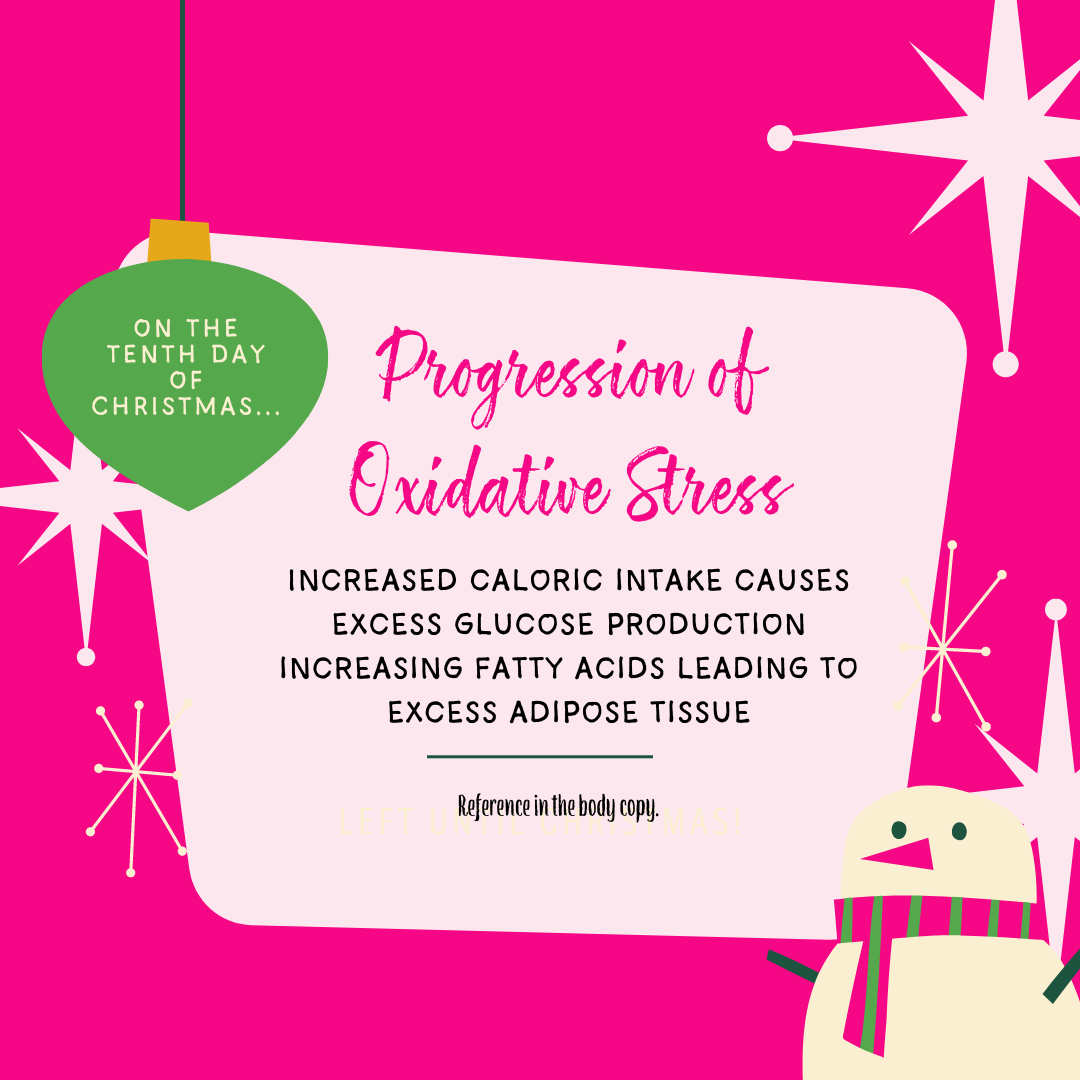
"I find this amazing, adipose tissue—fatty tissue—secretes inflammatory cytokines. So when a patient has that buildup of fatty tissue, that adipose tissue, they're releasing things like tumor necrosis factor alpha, interleukin-1, interleukin-6, which we know induces those reactive oxidative species, we've seen that there, that association between those reactive oxidative species also demonstrates an increase in C-reactive protein levels. So again, this is where an obese patient is already experiencing a systemic burden of inflammation, and now we understand that these individuals have an elevated risk for other chronic diseases because their own fat cells are creating more inflammation." – Katrina Sanders, RDH
Reference
- Chapple ILC, Potential mechanisms underpinning the nutritional modulation of periodontal inflammation. J Am Dent Assoc. 2009; 140 (2): 178-184.
- Hujoel P. Dietary carbohydrates and dental-systemic diseases. J Dental Res. 2009; 88 (6): 490-502.
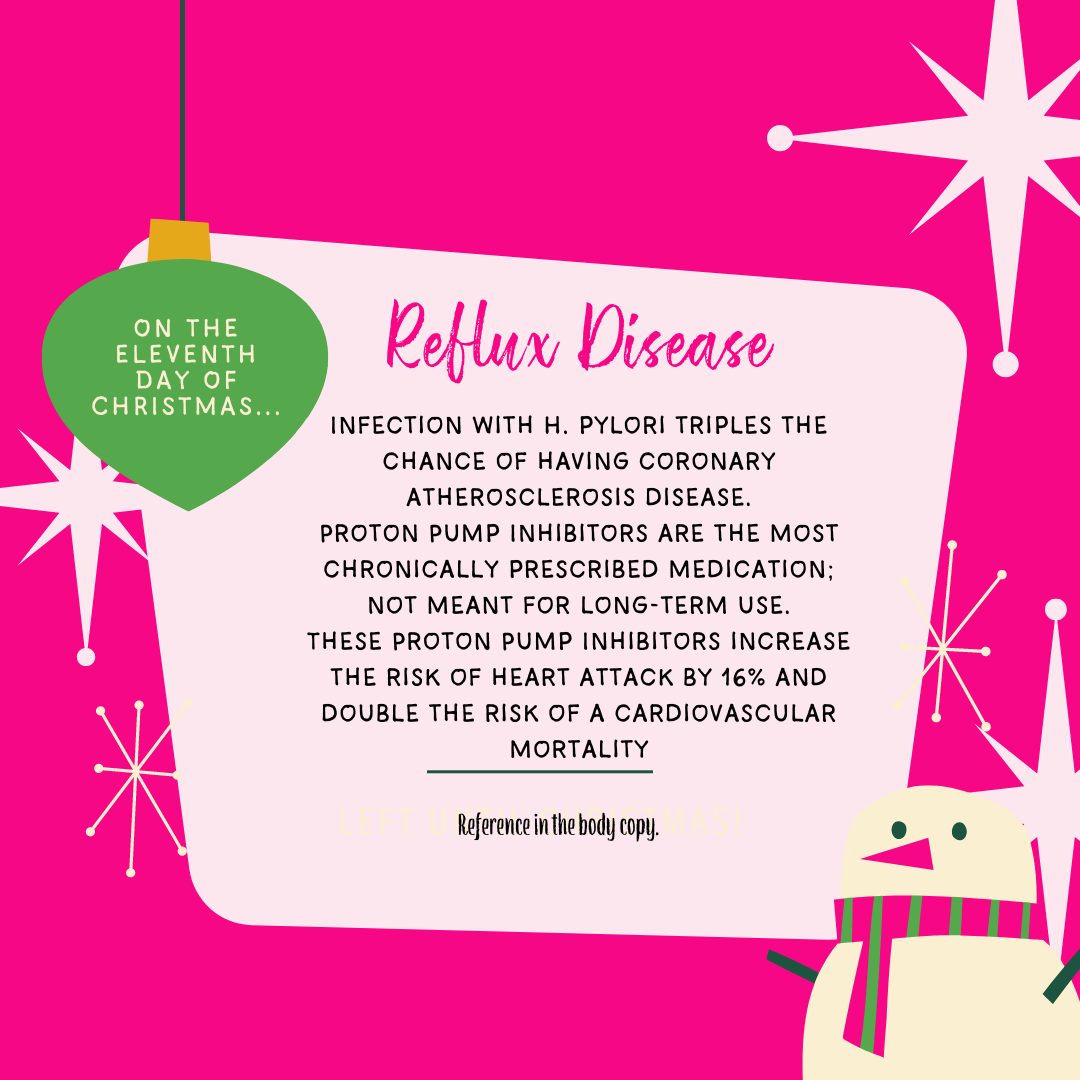
"Now, proton pump inhibitors are…only supposed to be prescribed for 2 to 4 weeks… So patients who experience this problem, what are they going to do? They do the easy thing, you know, oh, yeah, that's fine. I'll just buy this medication and take it and solve my problem…Long-term use of PPIs can cause low magnesium. And if you're not getting your magnesium, this can cause muscle cramps, dizziness, tremors, abnormal heart rhythms, seizures, and electrolyte abnormalities, it can also decrease your absorption of vitamin B 12, and this can lead to macrocytic anemia, therefore, leading to cardiac problems, and neurological problems, it can also affect your calcium and iron absorption. It's really going to affect your GI pH in general." – Elizabeth Sanders, DPM
References
- Lee M, et al "Current Helicobacter pylori infection is significantly associated with subclinical coronary atherosclerosis in healthy subjects: A cross-sectional study" PloS One 2018; 13(3): e0193646.
- Shah NH, LePendu P., Bauer-Mehren A., et al. (June 10, 2015). Proton Pump Inhibitor Usage and the risk of MI in the general population. LLoS ONE 10(6).

"There are very common risk factors that we do see, that are very similar between RA (Rheumatoid Arthritis) and periodontal disease, like tobacco habits, socioeconomic status, obesity, et cetera… RA is an inflammatory condition. And in fact, you know, one of my favorite pieces of information to provide about RA is that if a patient has rheumatoid arthritis, they have a 45% elevated risk of having a stroke. If patient has RA and high cholesterol, that elevates the risk of having a cardiovascular event or stroke by 700%. So we know that inflammatory condition certainly drains our patients the entirety of their health, their wellness, and their vitality, and ultimately elevates the risk that these individuals could experience some catastrophic diseases down the road." – Katrina Sanders, RDH
Reference
- Mercado FB, Marshall RI, Bartold PM. Inter-relationships between rheumatoid arthritis and periodontal disease. A Review. J Clin Periodontol 2003; 30: 761-772.
Related Content:



